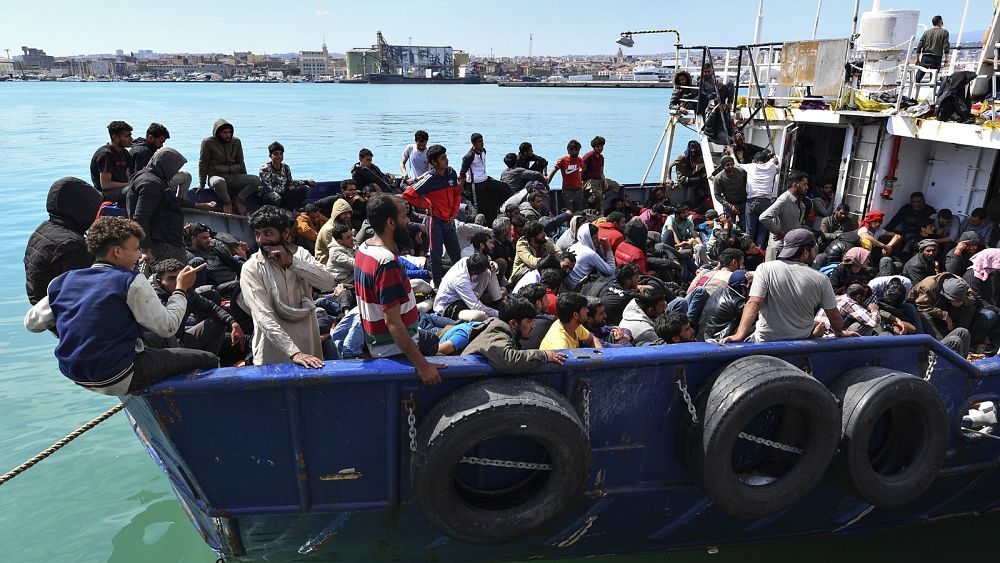General News
‘It’s 50/50 chances’: EU on the cusp of major deal to revamp rules on migration and asylum

After years of divisive and bitter debates, the European Union is nearing a major deal to establish a unified migration policy.
Ministers of home affairs from across the European Union are meeting today in Luxembourg to decide if they vote or reject a new set of rules to collectively manage the reception and relocation of asylum seekers.
If approved, the agreement would represent an incontestable breakthrough in the long and arduous fight to establish a common framework to govern migration, one of the most explosive and polarising topics on the EU’s agenda.
The EU Council would then be allowed to start negotiations with the European Parliament with the goal of wrapping up the legislation before next year’s EU elections.
The ultimate objective is to do away with the ad-hoc crisis management mode that has been in place since the 2015 migration crisis and has proven woefully inadequate to cope with the challenge of cross-border dimensions.
Last year, the EU received more than 962,000 asylum applications, the highest figure in the past six years.
“It’s 50/50 chances,” said a senior diplomat ahead of the high-stakes vote, speaking on condition of anonymity to express their feelings more freely.
“We’re very hopeful. It’s delicate. But we think it’s possible,” said a diplomat from a different country.
The optimism is being shared by Ylva Johansson, the European Commissioner for home affairs, who on Tuesday said there was a “big chance” to strike a deal.
“If there is a will, there will be an agreement,” Johansson told reporters.
The rules on the table stem from the New Pact on Migration and Asylum, a holistic proposal presented by the European Commission back in September 2020.
The pact’s most innovative element is a system of “mandatory solidarity” that would give member states three options to manage the influx of new arrivals.
- Accept a number of relocated asylum-seekers.
- Pay for the return of rejected applicants to their country of origin.
- Finance so-called “operational measures,” such as infrastructure and transport.
This solidarity mechanism, together with new rules on asylum procedures, are the two pieces of legislation that will be put on the table on Thursday.
But the draft laws have been considerably reworked since the Commission’s 2020 presentation. In fact, ministers will discuss a compromise text drafted by Sweden, the country that currently holds the rotating presidency of the EU Council and acts as an honest broker in the talks.
Sweden circulated its latest proposal on Tuesday evening, leaving officials to pour over the text’s details at record time before Thursday’s meeting.
The compromise has been described as a “fine balance” between solidarity– coded language for relocation – and responsibility – the brunt borne by frontline countries who have to process the majority of asylum applications.
Member states have for years been haggling on how to calibrate the scale.
On the one hand, southern countries, whose asylum systems are often overwhelmed and under-resourced, have repeatedly demanded legally-binding agreements on the redistribution of migrants across the bloc.
Germany, a country with a traditionally migration-friendly policy, has also backed the idea of a permanent system of relocation.
But on the other hand, Central and Eastern European states forcefully oppose any measure that would force them to host asylum seekers within their borders – or even contribute financially to their return, as it is envisioned in the current proposal.
Poland, in particular, has come against a proposed figure of €22,000 that countries will have to pay for each asylum seeker they do not wish to relocate.
The vote on Thursday will be taken by qualified majority, which means the draft law will need the approval of a minimum of 15 member states representing at least 65% of the EU’s population.
“There is momentum,” said a senior diplomat ahead of the vote. “But differences remain. Success is by no means certain.”
According to diplomats, the key vote will be delivered by Italy, which is facing a steep rise in migrants arriving on the country’s shores through the dangerous Mediterranean route.
The government in Rome has declared a state of emergency to deal with the situation, marking the first time since 2011 this radical decision is taken.
Disclaimer: No copyright infringement intended. All rights and credits reserved to respective owner(s).























